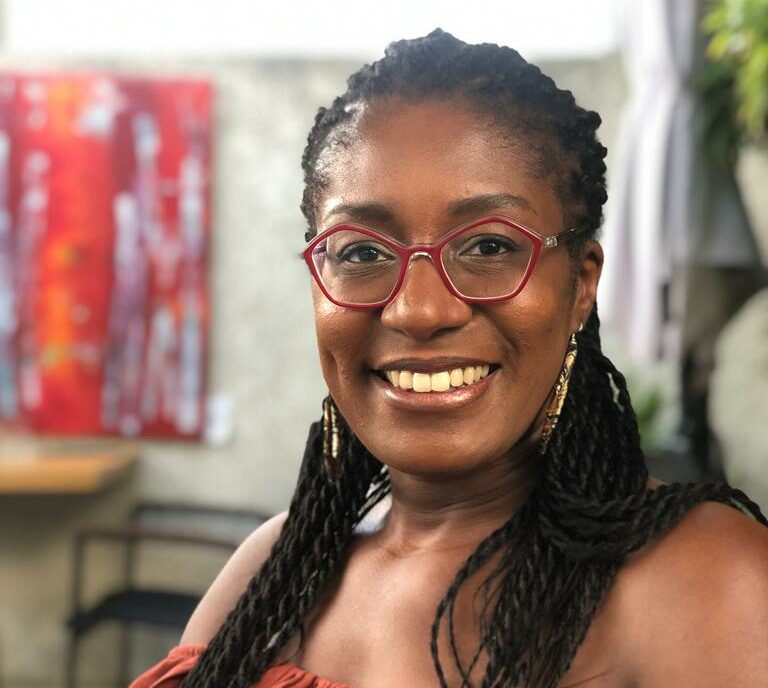Anna-Sophie Fiston-Lavier, decoder and coder of evolution
With one foot in evolutionary genomics and the other in bioinformatics, Anna-Sophie Fiston-Lavier fromthe Institute of Evolutionary Sciences in Montpellier (ISEM) scrutinizes genomes in search of repeated elements capable of influencing species adaptation. She promotes bioinformatics as a scientific discipline in its own right.

In the age of high-throughput sequencing, evolutionary genomics must be able to process the masses of data produced from decoded genomes. With her dual roles as a genomics scientist and bioinformatician, Anna-Sophie Fiston-Lavier is an accomplished scientist. The lecturer and researcher atthe Institute of Evolutionary Sciences in Montpellier (ISEM) combines experimental and computational approaches to understand how repeated elements in genomes influence evolutionary processes such as species adaptation.
"In my research work, I like to be at the beginning and end of the chain: collecting samples, thinking about the sequencing protocol, then interpreting the analyses, possibly using the algorithms and computer tools that I develop. As the only biologist in the UM's computer science department, she advocates for the importance of her specialty in extracting relevant information from the many non-homogeneous data sets collected. "Bioinformaticians aren't just programmers who fix printers and press buttons... Above all, they must be able to translate biological questions, understand the theories underlying existing tools, and have the expertise and critical perspective necessary to improve them if needed."
The world of transposable elements
A pioneer, Anna-Sophie Fiston-Lavier completed the first master's degree in bioinformatics at Paris-Diderot in 2000. Then a young biology student, she recalls being taken aback during her first class when faced with a black screen filled with green characters: "It was like The Matrix. I realized that it was up to us students to program and develop software for analyzing biological data! " " This training opened the door for this science graduate to pursue a thesis atthe Jacques Monod Institute, where she immersed herself in the world of transposable elements (TEs). Her research—a comparison of Drosophila genomes—reinforced the hypothesis of the impact of an element called "element P" on genome evolution.
Spotted by a Stanford professor invited to a seminar in France, she was offered a postdoctoral position at the Californian university. As high-throughput sequencing techniques rapidly improved, the young French researcher became a pioneer in the development of tools for detecting ETs in sequencing data. In particular, with the development of T-lex, " the big beast that detects and analyzes ETs in sequencing data." A reference to the T-rex, of course, but also to Solexa, one of the first sequencing companies.
Her work is as effective as her inspiration. By comparing ancestral Drosophila from East Africa with current American and European populations, Anna-Sophie Fiston-Lavier has helped to highlight the particular dynamics of ETs and their impact on adaptation processes. Some ETs appear to act on the regulation of genes encoding odor receptors, which are decisive characteristics for the adaptation of the species. Since then, she has continued to take an interest in sequencing technologies, which are also evolving and providing a better understanding of adaptation processes, particularly in insects. For example, she contributed to the study of the genome of the midge Belgica Antarctica, the only insect living in Antarctica.
"Engaging students in research"
After five years at the heart of Stanford's international emulation, the young researcher returned to France for family reasons, "a somewhat difficult time when I had to readjust to the French system. " Her recruitment at UM in 2013 allowed her to discover the Montpellier region: "For a Parisian like me, it reminds me a little of California!" Attached to the IT department, she developed a taste for educational innovation while working for six years as head of the bioinformatics master's program. "Beyond the transmission of knowledge, teaching pushed me to find educational tools to engage students in research," explains the woman who leads several educational innovation projects such as the Bioinformatics Learning Lab, Montpellier Omics Days, and boot camps, under the Anglo-Saxon influence of project-based learning.
Anna-Sophie Fiston-Lavier draws on her own experiences and background to motivate young people. As is often the case, the researcher talks about the importance ofthe"wonderful encounters"that have marked her career, but also mentions other, more unfortunate ones, such as at Jehan de Chelles high school, where she escaped a change of direction based on prejudice. "For spurious reasons, the school administration shut me out of science. Fortunately, with my mother's strong support, I managed to change schools and pass my science baccalaureate with flying colors."
President of the French Society for Bioinformatics
She does not hesitate to put this energy to work for her other cause: recognition of bioinformatics. "Research is shooting itself in the foot by failing to recognize the value of bioinformaticians, who are reduced to precariousness with fixed-term contracts, which prevents any capitalization of their knowledge." Her commitment earned her the position of president of the French Society for Bioinformatics in 2021. In recent years, the teacher-researcher has once again devoted more time to her research, thanks in particular to CNRS MITI funding obtained in 2019 and her appointment as a junior member ofthe InstitutUniversitaire de France in 2021.
